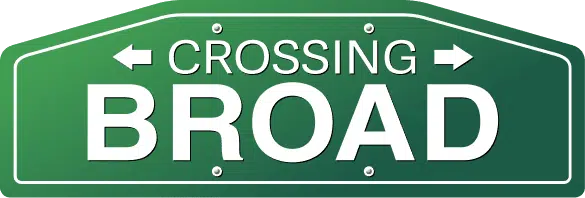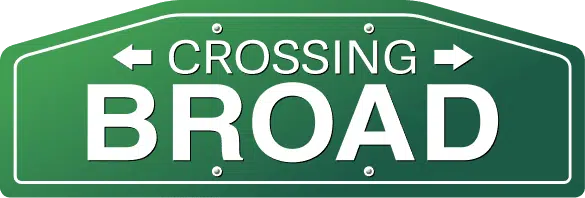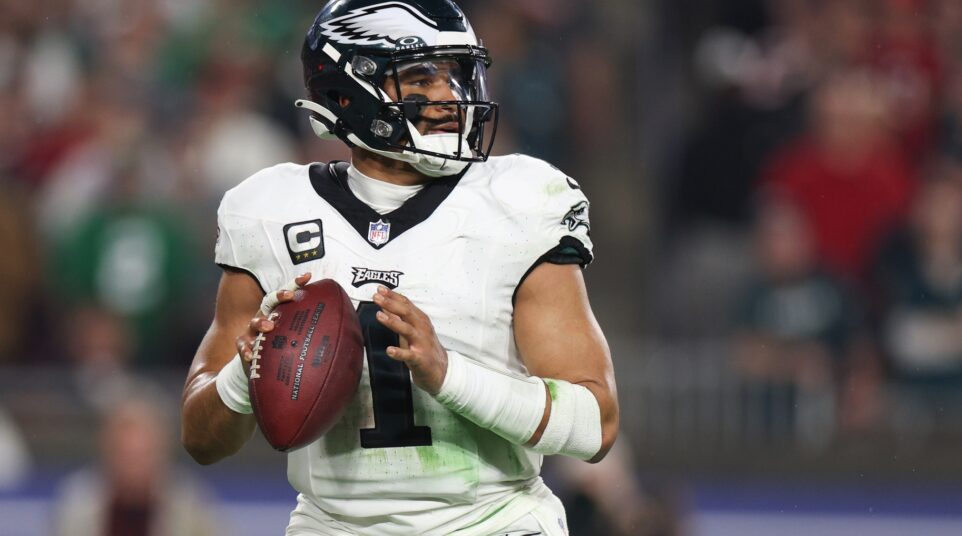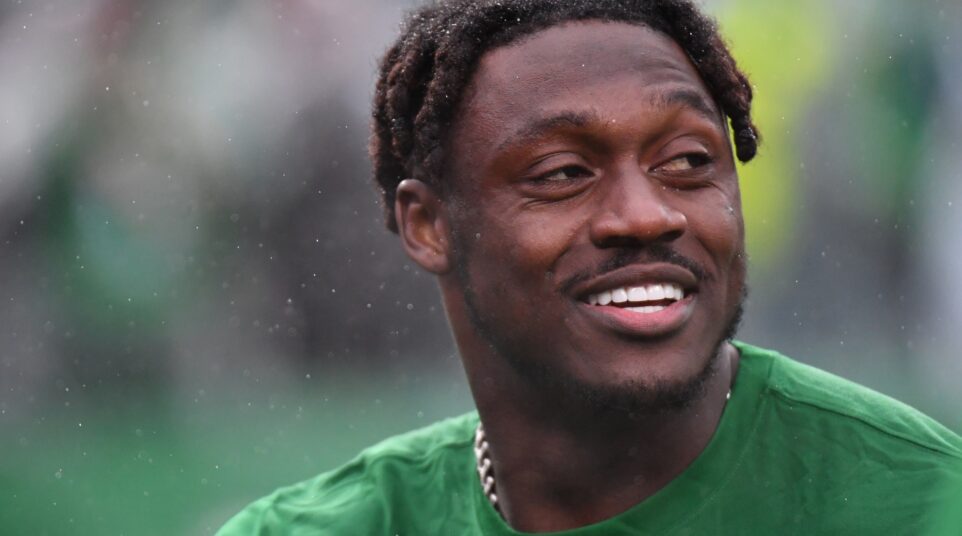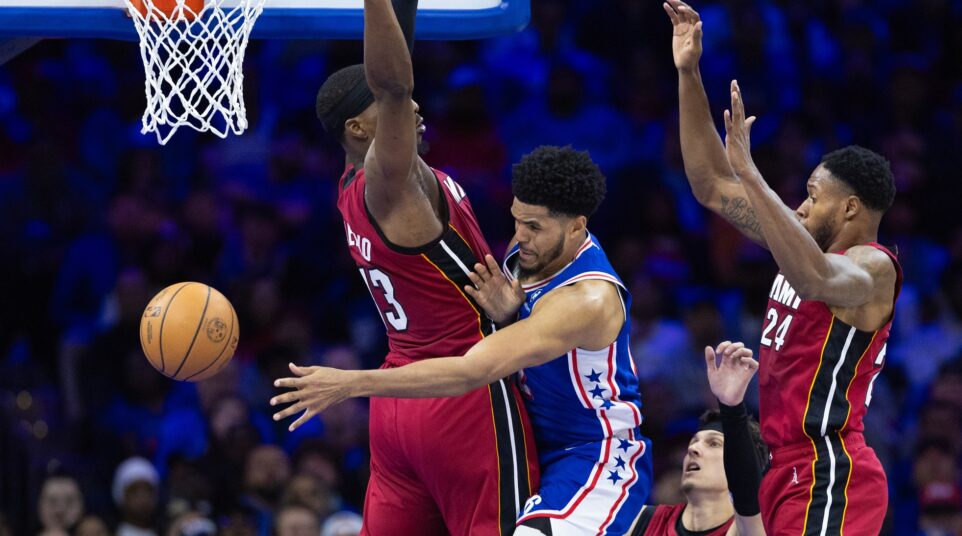Moose Sad: Sixers Threaten Legal Action on Fake Mascot Twitter Accounts
Swing and a miss– again.
The Sixers, who, let’s be honest, haven’t been relevant in at least five years, unveiled their three mascot choices earlier this week. As you know, they weren’t very good. But in the days since, two passionate fans, Jerry Rizzo and Hunter Coleman, created Twitter accounts for two of the three choices – B. Franklin Dogg (@BFranklingDogg) and Phil E. Moose (@PhilEMoose) – as a way to have some fun and lend support to Team Dogg and Team Moose. That reality has helped to create a bit of a buzz around the mascot voting, which ends this evening.
Rizzo and Coleman, who set up the accounts on Monday night, just shortly after the choices were unveiled, received direct messages from the Sixers thanking them for the support and asking about ways in which they and the team could work together. New CEO Adam Aron even acknowledged their welcome effort when he tweeted the following message in response to a question about the Twitter accounts:
The mascot Twitters from Ben, Dogg, Moose are NOT ours. Being run by fans who are having fun with this.
Free publicity for all. People are talking about the Sixers! Victory is theirs… right?
Wrong.
Today, Rizzo, with whom I spoke, received an email from Sixers new media manager Russell Falk requesting that since the mascots’ likenesses are trademarks of the NBA (did you already dot that i, Russ?), he and Coleman abandon poor B. Franklin Dogg and Phil E. Moose by turning over the passwords to their Twitter accounts by 7 PM tonight. - cue the ominous organ music - Falk also asked that “everything be done pleasantly, without involvement of lawyers or anything like that," according to Rizzo, who didn't want to share the email itself.
So, yeah, the Sixers threatened legal action on Rizzo and Coleman, two fans who graduated from Penn State last spring.
Now, you might be wondering: can they do that? I don’t know. Probably? But I do know that Twitter does have a policy regarding parody accounts:
Twitter users are allowed to create parody, commentary, or fan accounts (including role-playing). Twitter provides a platform for its users to share and receive a wide range of ideas and content, and we greatly value and respect our users' expression. Because of these principles, we do not actively monitor users' content and will not edit or remove user content, except in cases of violations of our Terms of Service.
However, Twitter requires that said accounts clearly distinguish themselves as being “fake” or a “fan” account:
Username: The username should not be the exact name of the subject of the parody, commentary, or fandom; to make it clearer, you should distinguish the account with a qualifier such as "not," "fake," or "fan."
Of course, one could assume that most sane human beings realize that a seven-foot moose doesn’t own an iPhone… or have opposable thumbs.
Twitter also has policies on using protected trademarks and “name squatting,” though the latter was never the intent of Rizzo, who says that he’s been keeping all Moose’s Tweets “clean” and positive.
As you can see, this is all entirely too serious a discussion about the Twitter account of a mascot. The fact is, the Sixers are flexing so they can get a couple of early-twentysomethings to hand over the passwords on Twitter accounts probably because they didn't think of it first. It's an understandable request, but not a necessary one. Seems to me Rizzo and Coleman can just add the word “fake” to the Twitter profiles of B. Frank and Phil E., and be done with the whole thing. But should they really have to? People are talking about the Sixers again (yes, even if it is just about the mascot)– perhaps the team should just leave well enough alone, before this turns into bad PR or something…
#freemoosie
Rizzo also shared his story with our friends at The School Philly
